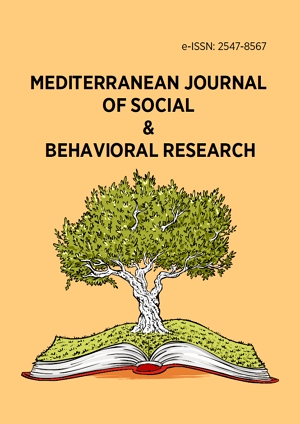Research Article
French Learners’ Opinion About the Effect of Study Abroad Experience on Language Learning
More Detail
1 Anadolu University, Faculty of Education, French Language Teaching Department, Eskişehir 26470, TURKEY* Corresponding Author
Mediterranean Journal of Social & Behavioral Research, 3(2), June 2019, 25-28, https://doi.org/10.30935/mjosbr/9590
Published: 01 August 2019
OPEN ACCESS 1379 Views 914 Downloads
ABSTRACT
According to the majority of learners and educators, the best way to learn a second language is to live in a country where this language is spoken. To become proficient in a second language, study abroad is admitted as ‘sine qua non’. Several studies demonstrated the positive impact of the study abroad experience. However, they usually measured language gains by test scores. Fewer studies consider the value of learners’ view of their personal and linguistic development during study abroad.
The aim of this study is to enlighten the perceptions of French learners study abroad experience and how a L2 is learned. We used semi-structured interview for collecting data from six students of French Language Teaching Department at Anadolu University. The subjects stayed in France during 2012-2013 academic year, one or two semesters with Erasmus exchange program. Students reported that they have gained fluency and their self-confidence has developed after the experience.
The aim of this study is to enlighten the perceptions of French learners study abroad experience and how a L2 is learned. We used semi-structured interview for collecting data from six students of French Language Teaching Department at Anadolu University. The subjects stayed in France during 2012-2013 academic year, one or two semesters with Erasmus exchange program. Students reported that they have gained fluency and their self-confidence has developed after the experience.
CITATION (APA)
Aydınbek, C. (2019). French Learners’ Opinion About the Effect of Study Abroad Experience on Language Learning. Mediterranean Journal of Social & Behavioral Research, 3(2), 25-28. https://doi.org/10.30935/mjosbr/9590
REFERENCES
- Amuzie, G. L., & Winke, P. (2009). Changes in language learning beliefs as a result of study abroad. System, 37, 366-379. https://doi.org/10.1016/j.system.2009.02.011
- Freed, B. (1995). What makes us think that students who study abroad become fluent? In B. F. Freed (ed.), Second Language Acquisition in a Study Abroad Context, 123-148. Amsterdam and Philadephia: John Benjamins. https://doi.org/10.1075/sibil.9.09fre
- Freed, B. (1998). An overview of issues and research in language learning in a study abroad setting. Frontiers: The Interdisciplinary Journal of Study Abroad, 4(2), 31-60. https://doi.org/10.36366/frontiers.v4i1.62
- Kinginger, C. (2008). Language learning in study abroad: case studies of Americans in France. The Modern Language Journal, 92, 1–124. https://doi.org/10.1111/j.1540-4781.2008.00821.x
- Maxwell, J. A. (2012). Qualitative Research Design: An Interactive Approach. Thousand Oaks, CA: Sage. Retrieved from http://www.sagepub.com/upm-data/43454_10.pdf
- Pellegrino, V. A. (1998). Student perspectives on language learning in a study abroad context. Frontiers: The Interdisciplinary Journal of Study Abroad, 4(2), 91-120. https://doi.org/10.36366/frontiers.v4i1.64
- Rivers, W. P. (1998). Is being there enough? The effects of homestay placements on language gain during study abroad. Foreign Language Annals, 31(4), 492-500. https://doi.org/10.1111/j.1944-9720.1998.tb00594.x
- Tanaka, K., & Ellis, R. (2003). Study abroad, language proficiency and learner beliefs about language learning. Japan Association for Language Teaching, 25(1), 63-84. https://doi.org/10.37546/JALTJJ25.1-3
- Wilkinson, S. (1998). On the nature of immersion during study abroad: some participant perspectives. Frontiers: The Interdisciplinary Journal of Study Abroad, 4(2), 121-138. https://doi.org/10.36366/frontiers.v4i1.65
- Wilkinson, S. (1998). Study abroad from the participant’s perspective: a challenge to common belief. Foreign Language Annals, 31(1), 23-39. https://doi.org/10.1111/j.1944-9720.1998.tb01330.x

 The articles published in this journal are licensed under the CC-BY Creative Commons Attribution International License.
The articles published in this journal are licensed under the CC-BY Creative Commons Attribution International License.